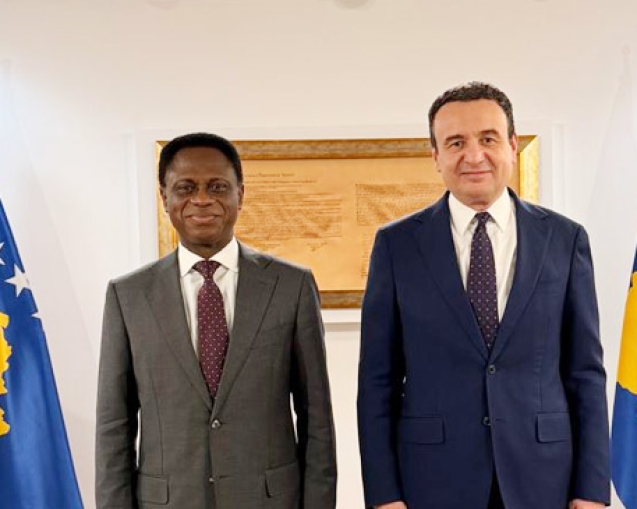In recent years, an unsettling trend has emerged: some Christians openly identifying as Freemasons. This development requires careful analysis from a biblical standpoint. While Freemasonry often presents itself as a benevolent fraternity dedicated to morality and philanthropy, its teachings and practices stand in stark opposition to the Christian faith. Here, we explore the historical roots, theological conflicts, and why people are lured to Freemasonry, demonstrating why it is incompatible with a life fully committed to Christ.
Historical Origins of Freemasonry
Freemasonry traces its origins to the late medieval stonemasons’ guilds of Europe. These guilds initially served as professional associations, regulating the trade and ensuring quality craftsmanship. Over time, the organization evolved into a speculative fraternity, incorporating esoteric philosophies, symbolic rituals, and allegorical teachings. By the 18th century, Freemasonry had developed into a secret society with a structured hierarchy, mysterious rituals, and a broad appeal among intellectuals and elites. Despite its claims of promoting morality and brotherhood, Freemasonry’s secrecy and syncretistic beliefs have long drawn criticism, particularly from the Christian Church.
In Ghana, certain influential figures have subtly or overtly promoted Freemasonry as an avenue for success, power, and societal recognition. By glamorizing this secret society, they risk misleading Christians into compromising their faith for earthly gains. This subtle recruitment strategy often targets those seeking social mobility or networking opportunities, disguising Freemasonry as a harmless fraternity rather than what it truly is: a system at odds with Christian doctrine.
Freemasonry’s Tenets Versus Biblical Principles
Freemasonry, at its core, operates under principles and practices that conflict with Christianity. While Freemasons claim to uphold morality, brotherhood, and charity, their foundational beliefs often veer into areas incompatible with biblical teaching. Consider the following tenets:
1. Relativism: Freemasonry promotes the idea that all religions lead to the same God. This philosophy directly contradicts Jesus’ declaration in John 14:6: “I am the way, the truth, and the life. No one comes to the Father except through me.” Christianity proclaims the exclusivity of Christ as the sole means of salvation—a truth Freemasonry denies.
By encouraging a syncretistic worldview, Freemasonry undermines the unique salvific work of Jesus Christ.
2. Esoteric Rituals: Freemasonry’s rituals and symbols often draw from occult traditions and ancient mysticism. Such practices directly oppose the biblical command to avoid pagan practices and idolatry (Deuteronomy 18:10-12).
3. Works-Based Salvation: Freemasonry emphasizes moral uprightness and charitable deeds as the basis for spiritual enlightenment and advancement within the order. This contradicts the biblical teaching of salvation by grace through faith (Ephesians 2:8-9), which declares that human effort cannot earn God’s favor.
4. Universalism: Freemasonry’s requirement to accept all deities as equal reflects a universalist ideology. For Christians, this compromises the first commandment: “You shall have no other gods before me” (Exodus 20:3).
- Denial of Christ’s Supremacy: In Masonic teachings, Jesus is often reduced to one among many moral teachers, undermining His divinity and redemptive work. Such a stance is antithetical to the Christian confession of Christ as Lord (Philippians 2:9-11).
6. Gender Exclusivity
Freemasonry excludes women, perpetuating a legacy of inequality that stands in stark contrast to Christ’s ministry. Jesus elevated the status of women, engaging with them as equals and honoring their contributions to His Kingdom. From the Samaritan woman at the well (John 4) to Mary Magdalene, the first witness of His resurrection (John 20:11-18), Christ modeled inclusion and partnership. Freemasonry’s exclusion of women contradicts the biblical vision of unity and equality in Galatians 3:28: “There is neither Jew nor Gentile, neither slave nor free, nor is there male and female, for you are all one in Christ Jesus.”
Why Freemasonry Is Becoming More Common
Social Media and Digital Exposure
Freemasonry’s presence online has grown, with many lodges maintaining websites, social media accounts, and even hosting events that are more open to the public. This transparency contrasts with its historical secrecy, making it more approachable and less intimidating.
Prominent Members and Influencers
High-profile personalities openly identifying as Freemasons lend a sense of prestige and legitimacy to the organization. Their affiliation glamorizes the fraternity, creating the impression that it is a gateway to success, influence, and networking opportunities.
Perception of Community
In an increasingly individualistic society, organizations like Freemasonry offer a sense of belonging and camaraderie, which many find appealing. For young professionals and those seeking meaningful connections, this sense of fraternity is a strong draw.
Misunderstanding of its Spiritual Nature
Freemasonry often presents itself as a philanthropic and moral organization, which can obscure its deeper esoteric and spiritual implications. People may join without understanding the full theological or ideological conflicts it may pose, especially for Christians.
Why People Want to Join
Networking and Career Advancement
One of Freemasonry’s most attractive features is the promise of professional networking. Members often gain access to exclusive circles of influence, which can be a tempting prospect for those seeking career advancement or social mobility.
Curiosity and Mystique
The secrecy surrounding Freemasonry’s rituals and symbols creates an aura of intrigue. This mystique can appeal to individuals who are curious or fascinated by hidden knowledge, symbols, and the promise of enlightenment.
Desire for Recognition
Many are drawn to the status that comes with being associated with a longstanding and influential organization. Freemasonry’s historical ties to power and prestige make it an attractive option for those seeking to enhance their social standing.
Philanthropic Appeal
Freemasonry often highlights its charitable works and contributions to society, which can attract individuals who wish to be part of a group that gives back to the community.
Rebellion Against Traditional Structures
Some Christians or individuals from religious backgrounds may join Freemasonry as a form of subtle rebellion against perceived rigid or restrictive traditions in their faith. The inclusive yet esoteric nature of Freemasonry may appear to offer a more “progressive” alternative.
Appeal of Universalism
Freemasonry’s emphasis on unity across religions and philosophies can be enticing to those who seek harmony in a pluralistic world. This ideology, while attractive on the surface, often masks a deeper conflict with the exclusivity of Christ in Christian teaching.
Why You Cannot Be a Christian and a Freemason
The incompatibility between Christianity and Freemasonry is not merely a matter of differing practices or perspectives; it represents a fundamental clash of worldviews. Christianity is firmly rooted in the worship of the true God—and unequivocally acknowledges Jesus Christ as the sole means of salvation. Freemasonry, by contrast, promotes a relativistic and universalistic approach to spirituality, where the belief in a “Supreme Being” is generalized to accommodate multiple religions, effectively sidelining the unique person and work of Jesus Christ. This dilution of faith undermines the very core of Christian doctrine and can be strictly seen as an agenda against Christ and His mission.
Belittling the Person and Work of Christ
Freemasonry, through its teachings and rituals, often relegates Jesus Christ to the status of one among many spiritual leaders, rather than exalting Him as the Savior of the world. This directly contradicts the biblical declaration in Acts 4:12, which proclaims that “salvation is found in no one else, for there is no other name under heaven given to mankind by which we must be saved.” By advocating a form of spirituality that minimizes the exclusive and redemptive role of Christ, Freemasonry subtly but effectively seeks to diminish the supremacy and sufficiency of Jesus.
Freemasonry operates on a worldview that seeks to unite all beliefs under a shared spiritual umbrella. While this may appear inclusive and harmonious, it inherently contradicts the Christian worldview, which is built on the exclusivity of Christ’s claims. Jesus declared, “I am the way, the truth, and the life. No one comes to the Father except through me” (John 14:6). This absolute truth is irreconcilable with Freemasonry’s relativistic approach, which reduces all religious beliefs to equal pathways to a higher power.
Furthermore, many of Freemasonry’s symbols and practices can be interpreted as attempts to replace or replicate the redemptive work of Christ. The organization’s emphasis on achieving enlightenment through progressive degrees or secret rituals fosters the idea that spiritual fulfillment is attainable through human effort or esoteric knowledge—an idea diametrically opposed to the gospel of grace. Christianity teaches that salvation is a free gift from God (Ephesians 2:8-9), not a status to be earned or unlocked.


















